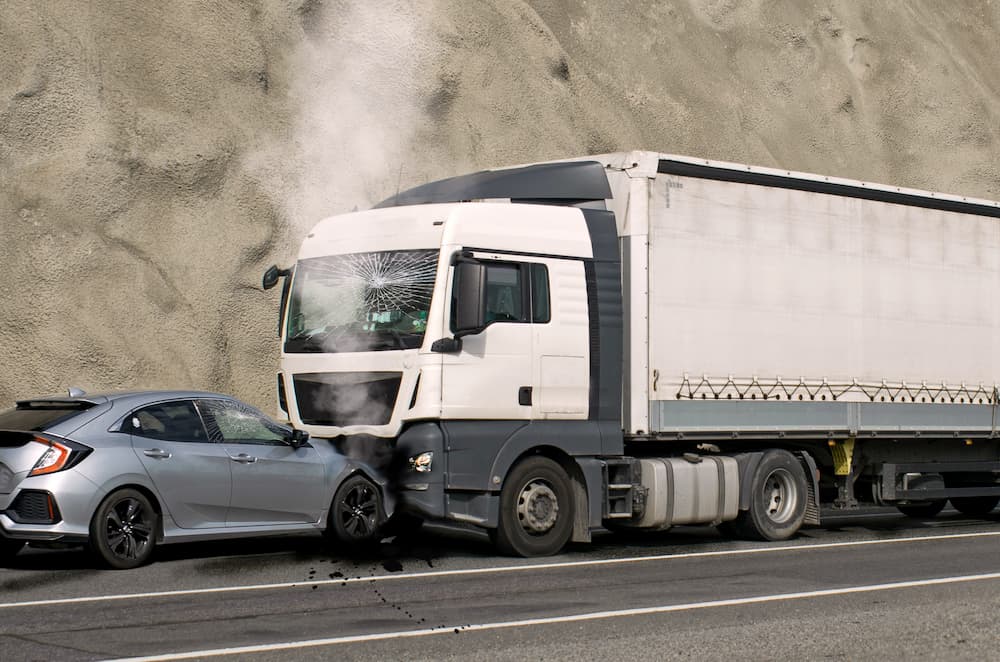- Why do you need commercial insurance for your small business?
- How much is small business insurance per year?
- How to estimate your small business insurance costs
- Small business insurance companies
- Small business insurance coverage options
- Factors that impact small business insurance costs
- How to reduce your small business insurance costs
- What our expert says
- FAQs: How much is small business insurance?
Why do you need commercial insurance for your small business?
Small business owners typically need insurance to meet contractual obligations, sign a lease and to comply with state laws. Even when coverage is optional, it still makes sense for any small business owner to protect their business property and assets from a financial loss.
Indeed, businesses face many physical and financial risks. A fire, theft or a natural disaster could disrupt operations and force them to close or relocate. A personal injury at your workplace involving a customer or an employee could result in expensive medical bills, legal fees and court costs.
By making sure you have the right coverage, you can reduce the chance that an expensive lawsuit or a physical mishap puts your business in a financial bind.
“Businesses face exposure to a number of risks for which they need insurance,” says Eric Goldberg, department vice president and counsel, commercial lines, at the American Property Casualty Insurance Association, an insurance industry group.
For example, general liability insurance, also known as commercial liability insurance, protects against common business risks such as a customer injury on your property, damage to a customer’s property and advertising risk. Your clients may require you to have this coverage before they will sign a contract.
“Commercial liability insurance provides coverage for indemnity to third parties as well as defense costs, if there is an ‘occurrence’ as defined in the policy,” Goldberg says. “When such claims involve the business being sued, if the allegations are covered by the policy, the business may also receive legal representation provided under the insurance policy.”
Another key policy, commercial property insurance, insures against damage to your business property from fire, smoke, vandalism, wind and hail. It’s often required to qualify for commercial leases.
“If the business owns or rents a building, it will need commercial property insurance coverage to cover the structure and contents,” Goldberg says. “One coverage that is part of commercial property coverage is business interruption insurance, which provides coverage if the business is shut down due to a covered cause of loss. This could include money to operate from an alternative location, wages for workers that are unable to work, lost profits, etc.”
You’ll likely need some types of coverage to comply with the laws in your state.
Most states, for instance, require commercial auto insurance for any business-owned vehicles.
Most states also require workers’ compensation insurance for businesses that employ a certain number of workers – the exact number depends on the state – and for sole proprietors in riskier professions such as roofing. Workers’ comp provides medical and wage replacement coverage for employees with work-related injuries and illnesses.
You might also need professional liability insurance, also known as errors and omissions insurance, if you have a professional license in your state. It covers client lawsuits over customer complaints or mistakes in your work that causes a physical or financial injury.
Additionally, commercial lenders typically require certain types of coverage to obtain a mortgage or a business loan. You would likely need certain amounts of general liability and property insurance coverage. If you live in a disaster-prone area you may need additional policies, such as flood insurance.
Insight: Most states require commercial auto insurance for any business-owned vehicles. Most states also require workers’ compensation insurance for businesses that employ a certain number of workers – the exact number depends on the state – and for sole proprietors in riskier professions such as roofing.
How much is small business insurance per year?
Your actual costs depend on many factors, but, according to Insureon, the average cost of small business insurance for the most common types of small business insurance are:
- General liability: $500 per year
- Workers’ compensation: $540 per year
- Business owner’s policy: $684 per year
- Professional liability/E&O: $732 per year
- Commercial property: $804 per year
- Commercial umbrella: $1,125 per year
- Cyber: $1,740 per year
- Commercial auto: $1,764 per year
How much does small business insurance cost per month?
According to Insureon, the average monthly premium cost for small business insurance is:
- General liability: $42 per month.
- Workers' compensation: $45 per month
- Business owner’s policy: $57 per month
- Professional liability/E&O: $61 per month
- Commercial property: $67 per month
- Commercial umbrella: $75 per month
- Cyber: $145 per month
- Commercial auto: $147 per month
How to estimate your small business insurance costs
There are several things an insurance company considers when calculating your insurance premiums. It would be difficult, if not impossible, for someone outside the insurance industry to estimate their own premiums.
Fortunately, there are many insurance companies that allow you to obtain free business insurance quotes online. You’ll need to answer basic questions about your business, such as the type of work you do, how many employees you have, your business income and the amount of coverage you need.
Small business insurance companies
There are any number of commercial insurers that small business owners can choose from. A good place to start your search is Insurance.com's list of the 10 best small business insurance companies, which includes:
- Allstate
- Chubb
- American Family
- Philadelphia Insurance
- State Farm
- CNA Insurance
- The Hartford
- Nationwide
- Travelers
- Liberty Mutual
Small business insurance coverage options
For legal and liability reasons and to protect against financial risk there are certain insurance policies that every small business owner should have.
General liability
Most small business owners start with general liability coverage, because it insures against so many business risks such as injury to a customer on your property, damage to a customer’s property, product liability, copyright infringement and advertising injury. It’s often required to qualify for leases and contracts.
If you or your employees visit other people’s property, your business could be at risk of causing physical or financial harm. If you run your business out of your home, your homeowner’s insurance might not cover you for a business-related risk, so you might need a general liability policy. You might be able add this coverage to your existing homeowner’s insurance.
Commercial auto insurance
Most states require a minimum amount of liability coverage for business-owned vehicles, which covers the cost of an accident if you or an employee are at fault for an accident involving a business vehicle.
Comprehensive and collision coverage may be required by your lender if you lease or finance your business vehicles, though they are worth having even when not required. Collision covers damage to the company’s vehicles while comprehensive covers non-collision events such as fire, theft, vandalism or acts of nature such as hail.
Workers’ compensation
Workers’ comp is required in most states for any business with one or more employees. It might also be required if you’re a sole proprietor working within the building trades.
It covers medical bills in case you or an employee are injured in a work-related mishap or illness. It can also offset lost wages if the employee is unable to work for a while. Regular health insurance is unlikely to cover any medical bills from a work-related incident.
Many sole proprietors buy this coverage even when it’s not required, because of the medical and wage benefits it offers.
Commercial property
If you own or rent your business property, you’ll need commercial property coverage to financially protect your business.
Think of the risks your business faces from fire, severe weather and crime. If your business property such as furniture, computers, tools and inventories were stolen or damaged it could put your business in a financial bind. The cost of repairing the building itself could be prohibitive without this coverage.
You might also add business interruption insurance as a rider to your commercial property coverage. It can help pay for your rent and relocation costs, day-to-day expenses and lost revenue if you’re forced to close or relocate after a covered loss.
Hired and non-owned auto
Your personal auto insurance covers you while driving to and from work, but not while you’re performing work-related tasks such as making deliveries or picking up supplies. If yourself or your employees use rented or personal vehicles for work, HNOA offers financial protection that’s similar to commercial auto coverage.
Professional liability/E&O
Anyone with a professional license from their state may need professional liability insurance, also known as errors and omissions coverage. It covers lawsuits from clients who are unsatisfied with your work over issues such as negligence, breach of contract, missed deadlines and causing personal or financial harm.
It’s often part of state licensing requirements for professions such as realtors, attorneys, accountants and healthcare professionals. In the medical field, this coverage is known as medical malpractice insurance.
Business interruption insurance
Business interruption insurance, or business income coverage, kicks in during times when a business can’t operate due to a natural disaster or some other event. It can cover, according to industry group the Insurance Information Institute, lost net income (based on financial records), mortgage, rent and lease payments, loan payments, taxes and employee payroll.
Business owners policy
These policies combine general liability coverage and commercial property insurance into a bundle that’s typically less expensive than buying the policies separately.
Other small business insurance options
While general liability, property insurance, vehicle insurance and workers’ comp are all important to protecting your business, there are other insurance options you might need to consider. These include:
- Cyber insurance, also known as cyber liability insurance, covers the cost of responding to data breaches and cyber hacking.
- Commercial umbrella insurance is an affordable way of extending your liability coverage. It kicks in when you max out on an underlying policy, such as general liability.
- Inland marine insurance, also known as contractor’s tools and equipment insurance, covers the loss of your business property while it’s being transported or used at an off-site location.
- Liquor liability insurance is required by most states for any business that sells or serves alcohol. Liquor liability covers legal fees and medical costs if a business serves alcohol to an intoxicated person who hurts other people or damages property.
- Flood insurance provides coverage from flooding and may be required if you live in a flood prone area or a federally designated flood zone.
Factors that impact small business insurance costs
The type of business you own, its size and your location are among the key factors that impact your small business insurance costs.
Factor 1: Location
If you’re in an area that’s prone to natural disasters, crime or other risks, you’ll likely have to pay more in premiums. If your business could pose an environmental risk, the insurance company might also consider the property values surrounding your business and worksite locations as it could impact how much the insurance company might have to pay on a claim.
Factor 2: The type of work you do
Some professions are just more expensive to insure than others. For example, a consultant with a home office who rarely meets with clients in person can expect to pay far less in liability premiums than a retail store, a factory or a construction company which likely has many people working at or visiting their workplace. A trucking business can expect to pay more for commercial auto coverage than a small business with one or two company cars.
Factor 3: Your business income
This gives insurers a guideline on your level of business risk. Businesses with larger incomes tend to have greater risks.
Factor 4: How much property you have
The size of your business property can dramatically affect what you pay for commercial property insurance, along with the amount of business equipment you have and the supplies or inventories you keep on site. Of course, the number of business-owned vehicles you have will affect how much you pay in commercial auto coverage.
Factor 5: How many employees you have
Every employee at your business increases your risk level for workplace-related accidents, injuries and damage to someone else’s property. This can especially impact how much you’ll pay for workers’ comp insurance.
Factor 6: Your business experience and credit history
The more established and credit worthy your business is, the less risk your business is likely to have – dramatically impacting your premiums. Businesses with limited experience or credit history can be harder to insure.
Factor 7: Your claims history
A business with a series of expensive claims can expect to pay more in premiums than one without.
Factor 8: Your deductible and coverage amounts
Higher coverage levels and lower deductibles can increase the financial security of your business, yet will also increase your premiums. It’s important to set your coverage limits and deductible at a level that gives you the financial security you need to survive a mishap, yet also keeps your premiums affordable.
Most business insurance policies have two limits: a per-occurrence limit and an aggregate limit.
The per-occurrence limit is how much the insurance company will pay for any claims related to a single incident or event.
The aggregate limit is how much the insurance company will pay for all claims within a coverage period, which is typically one year.
How to reduce your small business insurance costs
You need enough insurance coverage to cover the cost of a lawsuit, a personal injury, damage or loss to your business property and other risks. But there are some things you can do to help reduce your small business insurance rates:
- Adopting a comprehensive safety plan can help you reduce your chances of an accident and an insurance claim, which helps keep a lid on premiums. Employee safety and procedural training can be an effective way of reducing your chance of an expensive accident or lawsuit and an insurance claim.
- Working with your insurance company to identify and reduce risks. For example, Goldberg says, a carrier can recommend building changes (installing a sprinkler system, improving the roof) to prevent losses to your building. Many insurance companies offer a reduced premium on commercial property insurance for buildings that have sprinklers.
- Bundling your policies can also help you save money. Many small business owners buy a business owner’s policy (BOP), which combines their general liability and property coverage and is usually less expensive than purchasing these policies separately. Ask your insurance company about similar packages that will get you a discount, such as combining general and professional liability.
- Adjusting your coverage limits. Choosing a higher deductible will increase the amount you pay on individual claims but will lower your premium. Opting for lower coverage limits can also reduce your premium. Don’t set your deductible so high or your coverage limits so low that your business couldn’t afford an expensive mishap.
- Paying your premium annually might earn you a discount from your insurance company.

What our expert says
FAQs: How much is small business insurance?
Does my industry and company size influence business insurance costs?
Absolutely. These are two key factors an insurance company will examine when setting your coverage rates. They give the insurance company a clear idea of the types of risks you face.
What happens if I underinsure my business to save on cost?
While it might be tempting to save money on premiums by underinsuring your business, not buying the right amount of coverage could wind up costing you plenty in the long run. Just one incident involving a personal injury or damage to property could shut down your business.
How does my claims history impact my insurance premiums?
Any claims history your business has will have a direct impact on how much you have to pay in premiums. The more claims you have, and the more expensive they are, the higher the premiums will be in the future.
Can I bundle different types of business insurance to save money?
Bundling different policies is an effective and easy way to reduce your insurance costs. It’s why so many small business owners combined their general liability and commercial property insurance into a business owner’s policy.






